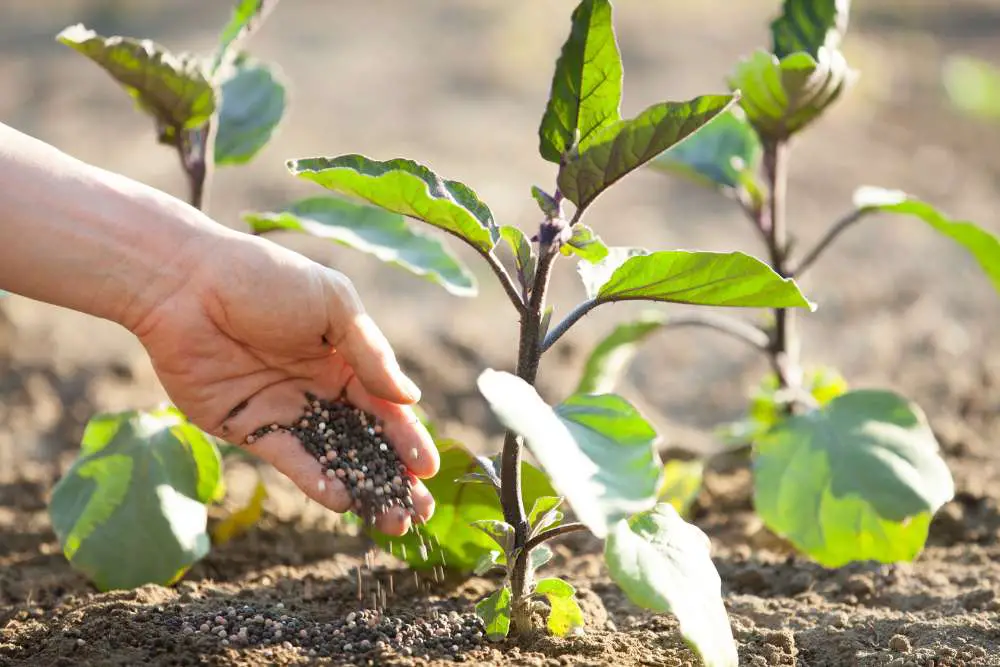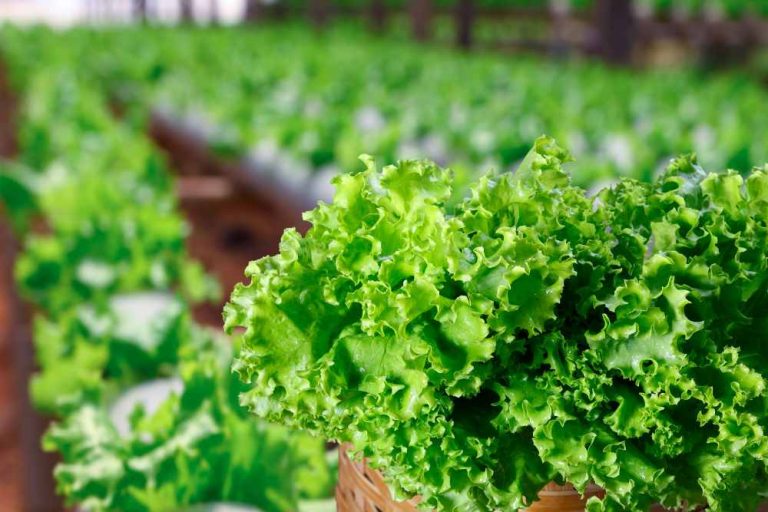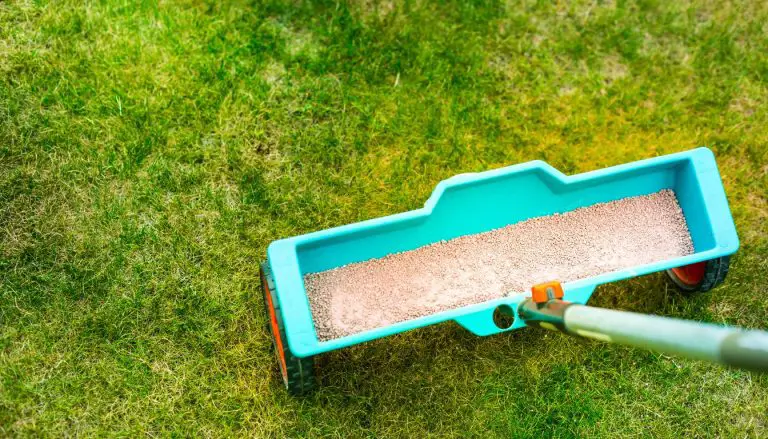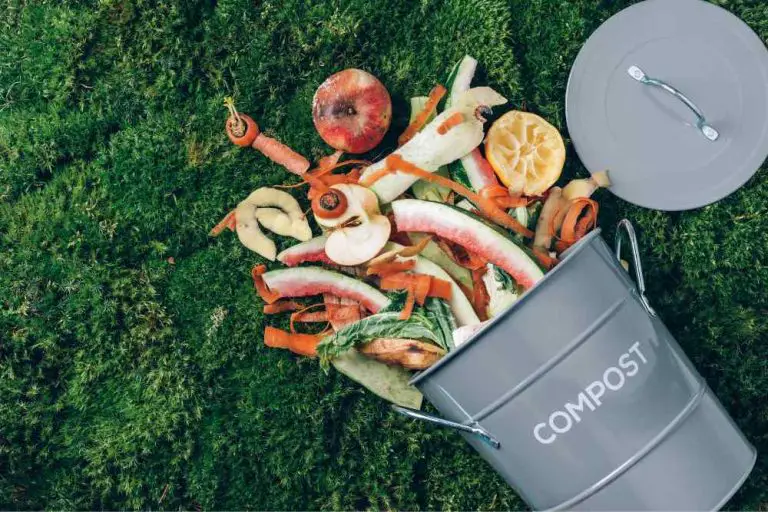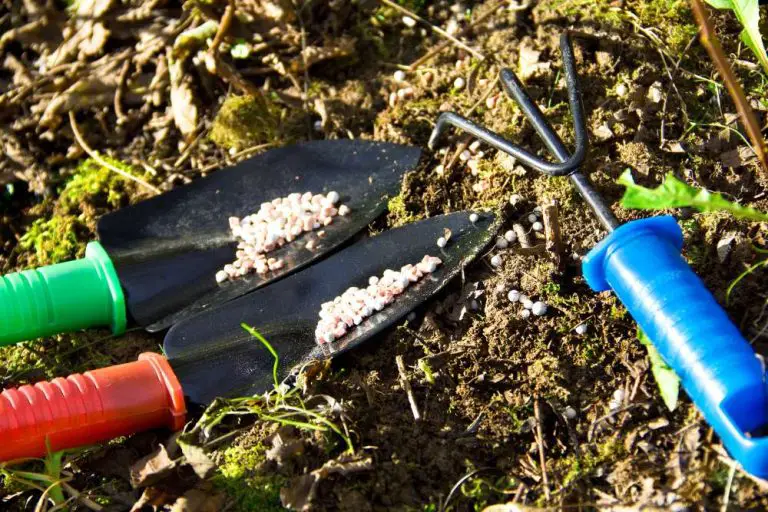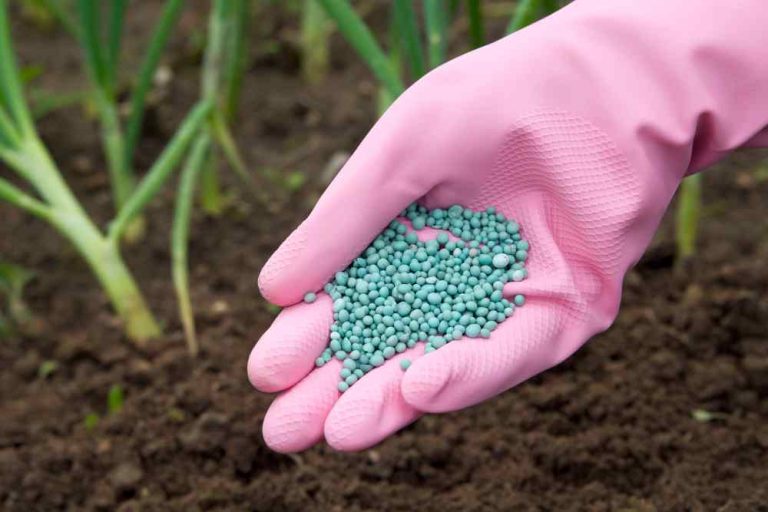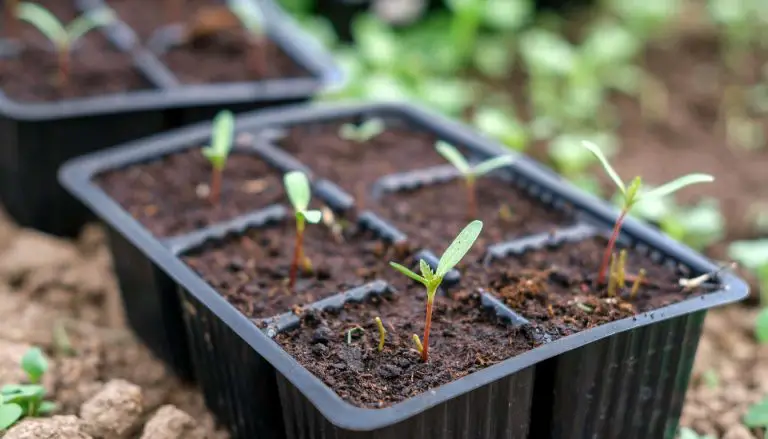Unveiling the 18 Best Fertilizer for Eggplants – A Comprehensive Guide
Eggplant (Solanum melongena) is a lovely warm-season annual that is relatively easy to grow in warm weather. The planting season must be continuously warm, with daytime temperatures about 80 degrees Fahrenheit and nighttime temperatures not falling below 65 degrees Fahrenheit. Once you’ve placed your plants outside, lower temperatures will cause slow development.
Apply eggplant fertilizer in small amounts during the extended growing season to offer the nutrients needed to develop the heavy fruit.
If you want to produce Eggplant in your yard, make sure you provide it with the necessary nutrients. You should think about what type of fertilizer will produce the desired outcomes. Fertilizers might be chemical or organic.
Organic manure consists of animal or plant waste. It offers stable, gradually released nutrients to the soil. Chemical fertilizers contain inorganic components. These give immediate release nourishment, which is especially helpful for growing plants that require rapid growth. As a result, your plants will receive the nutrients they need and remain healthy. Knowing the best fertilizer for eggplant will help you to get a better harvest.
Best Organic Fertilizers For Eggplant
1. Cottonseed Meal
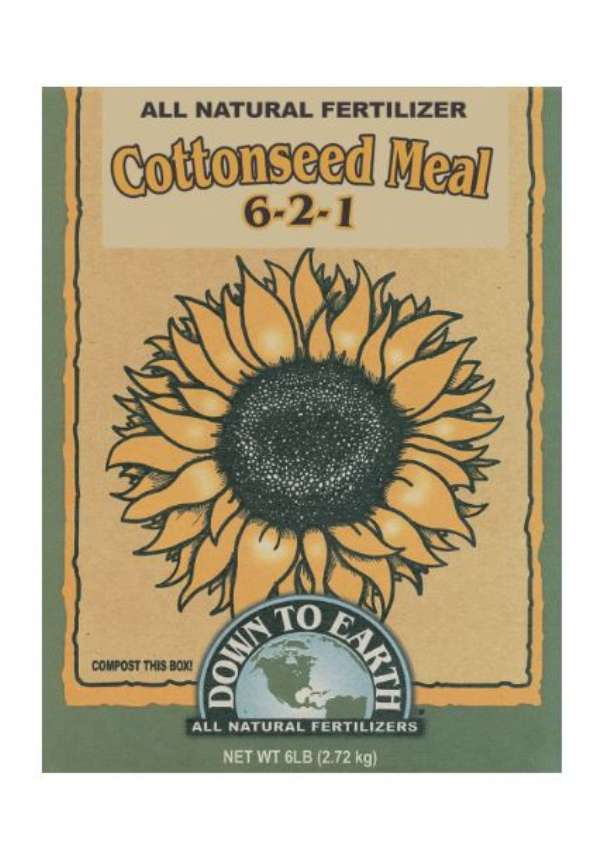
Apply a 2.5 to 5-centimeter layer of cottonseed meal to the specified area when using cottonseed meal for eggplants. Use a cottonseed meal feed in the amount of 3.5 to 4.5 kilograms per 30 meters if the soil is very poor.
2. Seaweed
The seaweed fertilizer is an excellent source of nutrients and trace elements for container-grown eggplants as well as plants grown in the ground. The overall health of Eggplant is improved with seaweed manure and organic plant nourishment.
3. Bat Guano
When utilizing bat guano in powder or palette form, sprinkle it only at the base of your plants and thoroughly water it.
You can also combine 2 to 3 teaspoons with a gallon of water and pour it over your eggplants. You can pour bat guano tea on the roots of eggplant plants or use it as a foliar spray.
4. Compost Manure
fertile, well-drained soil that resembles an eggplant and is rich in organic content. Applying fertilizer or well-rotted manure around your plants is usually a good idea.
5. Farmyard Manure
Farmyard manure is a decaying mixture of farm animal excrement and urine that has been left to the material with dirt and from the rough or fodder provided to cattle. To ensure good eggplant production, 15 to 20 tonnes of well-rotten FYM are fed to the soil. Farmyard fertilizers contain an average of 0.5% N, 0.2% P2O5, and 0.5% K2O.
Homemade Fertilizers For Eggplant / Brinjal Plant
1. Neem Cake
It also functions as a bio-fertilizer by giving the necessary nutrients, nitrogen, and phosphorus for the growth of Eggplant. Its application ensures increased crop productivity.
2. Wood Ash
Wood ash is a readily available supply of potassium, calcium, and magnesium, all of which are needed for plant health. Combine 1/2 kg of vermicompost, 1/2 kg of neem cake, 1/2 kg of wood ash, and 1/2 kg of cattle compost in a basin.
The topsoil layer should be removed, and the pot should be filled with well-mixed manure. The surface soil should then be used to recover the mixture.
3. Banana Peels
Banana peels are often discarded as trash, but they are considered green gold in gardening. Rich in potassium, calcium, and phosphorus, banana peels provide essential nutrients for flower and fruit development.
To use banana peels as a homemade fertilizer, cut them into small pieces and bury them about an inch deep in the soil around your eggplant plants. As the peels decompose, they gradually release their nutrients, promoting healthy growth and increased disease resistance.
4. Eggshells
Eggshells are another valuable resource that can be utilized as a potent homemade fertilizer. Eggshells are packed with calcium, vital for preventing blossom end rot, a common problem in eggplants and other nightshade vegetables.
To prepare eggshells for use, rinse them thoroughly to remove any residue, then crush them into small pieces. Sprinkle the crushed eggshells around the base of your eggplant plants to supply a slow-release calcium boost throughout the growing season.
5. Grass Clippings
Instead of bagging up your grass clippings after mowing the lawn, put them to use as a nutrient-rich mulch for your eggplants. Grass clippings contain nitrogen, which supports leafy growth and overall plant health.
Apply a layer of grass clippings around your eggplant plants, being careful not to smother them. As the clippings break down, they release nitrogen into the soil, giving your eggplants a steady supply of this essential nutrient.
6. Tree Leaves
When autumn comes, and the trees shed their leaves, don’t hurry to dispose of them. Fallen leaves are a fantastic source of organic matter that can be turned into nutrient-rich compost. Create a compost pile using a mix of tree leaves, kitchen scraps, and garden waste.
Once the compost is ready, use it to enrich the soil around your eggplants. Compost provides essential nutrients and improves soil structure and moisture retention, ensuring your eggplants have the best possible environment to grow.
7. Coffee Grounds
Don’t toss those used coffee grounds if you’re a coffee lover! Coffee grounds are a nitrogen-rich fertilizer that can give your eggplants the energy boost they need. Sprinkle the coffee grounds on the soil surface around your plants, and as they break down, they’ll release nitrogen into the soil. Coffee grounds also act as a natural deterrent to some common garden pests, adding extra protection to your precious eggplant crop.
Tips for Using Homemade Fertilizers
- Moderation is Key: While these homemade fertilizers are fantastic for your eggplants, remember that using too much of a good thing can be harmful. Always follow recommended guidelines for application to avoid overfertilization.
- Compost with Care: If you’re using homemade compost, ensure it has fully decomposed before applying it to your eggplants. Unfinished compost can rob the soil of nitrogen during decomposition.
- Be Patient: Unlike synthetic fertilizers, homemade fertilizers release nutrients slowly over time. Be patient and give the natural process time to work its magic on your eggplants.
- Water Wisely: Proper watering is essential for nutrient absorption. Keep the soil consistently moist but not waterlogged to optimize the uptake of nutrients by the eggplant roots.
Liquid Fertilizers For Eggplant
1. Cow Dung
Cow dung affects the number of fruits per plant, the length of fruits, the diameter of fruits, and the weight of fruits per plant.
Cow dung helps the plant grow by retaining water in the soil that the Eggplant needs to flourish. It also gives the soil a healthy structure, resulting in a light, bloated soil that is not compacted. Cow dung can significantly improve heavy soil.
Cow dung offers the well-drained, nutrient-rich soil that eggplants require. Spray the plants with a seaweed solution containing a teaspoon of dissolved Epsom salt per gallon as soon as the first blossom develops. This solution enhances the fruit set.
Commercial Fertilizers For Eggplant
Fertilizers can be made chemically or naturally from plant debris, animal manure, or rock minerals. In soil based on Eggplant, powder, palette, or granules can be sprinkled between rows or as a side-dressing.
To stop fertilizer from spraying on the plant during heavy rain, fertilizers applied in this manner should penetrate the soil. Foliar feeding is an alternate method to Eggplant since plants can take nutrients through their leaves.
Use foliar liquid fertilizer that is commercially available, or mix your own with thin manure tea. When it is chilly outside, spray a fine mist of this liquid on the affected area early in the morning.
Finally, gardeners cannot go wrong with high-quality tomato manure when it comes to composting Eggplant. Being a part of the nightshade family, eggplants are comparable to tomatoes in terms of their nutritional needs. In case you miss this: check out our blog on Growing Eggplant.
NPK Ratio – Although they are relatively easy to grow, eggplants require a lot of food. Fertilizers can help the plant grow. 2-4 inches of well-rotted manure should be incorporated into the soil before planting outdoors.
Choose 10-10-10 fertilizers in place of manure if it is not readily accessible. Use 10-20-20 fertilizer or 10-30-10 fertilizer as soon as the fruit appears on the Eggplant.
Best Commercial Fertilizers For Eggplant
1. Miracle-Gro Shake n Feed
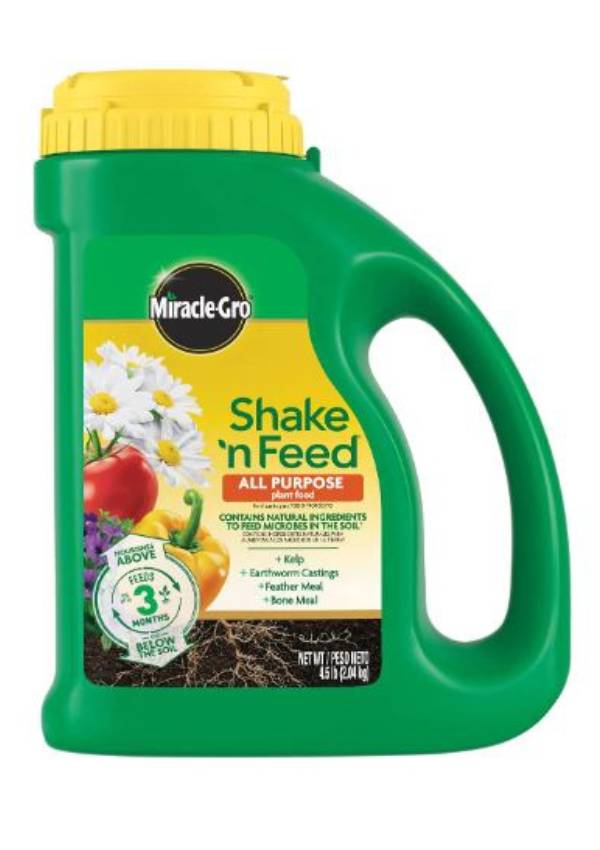
Miracle-Gro Shake’ N Feed All Purpose Plant Food includes essential micronutrients that promote plant growth, resulting in blooming plants that are noticeably healthier and more colorful.
Miracle-Gro® Shake ‘n Feed is a Plant food with a continuous release for all purposes 12-4-8. The best feature is that it is suitable for both in-ground and potted plants! It contains the following organic nutrients that your plants will appreciate: Earthworm Castings, Feather Meal, and Bone Meal
Miracle-Gro Shake’ N Feed is one of the best garden fertilizers for continuously supplying micronutrients to support strong growth and increased eggplant production. It enables plants to develop more robust, vibrantly, and productively than unfed plants. As a result, it ranks as one of the Best Eggplant Fertilizers available. It allows rainwater to infiltrate the soil, which helps to save water. Micronutrients are included to help plants grow more vigorous and productive.
- Feeds the soil both above and below the surface to promote root growth and strength.
- Contains organic nutrients that promote plant growth and health.
- Provides nutrition to the plants for up to three months.
- It is safe to use on any in-ground or container plant.
2. Miracle-Gro All-Purpose Plant Food
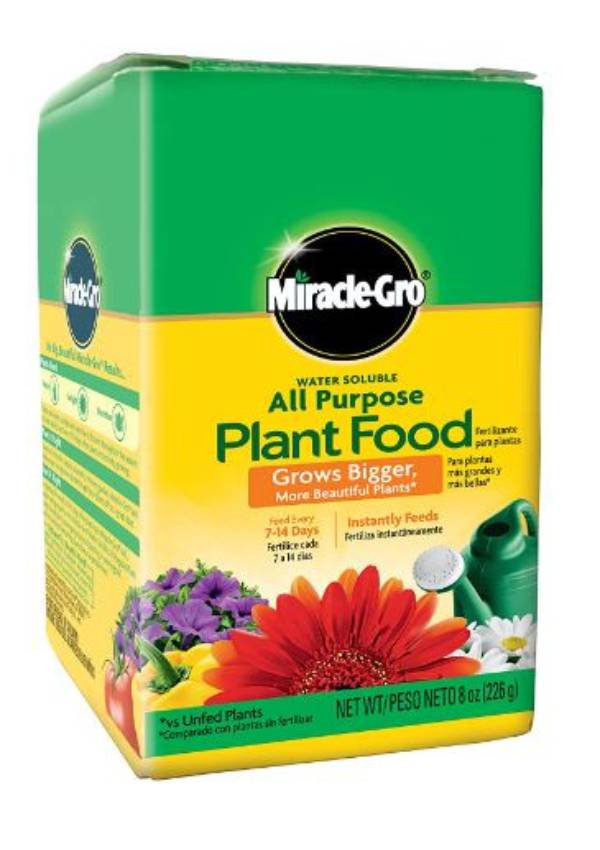
Miracle-Gro® Water Soluble All Purpose Plant Food quickly feeds vegetables, trees, shrubs, and houseplants, causing them to grow larger and more beautiful than unfed plants. Feed them once every 1-2 weeks.
Miracle-Gro is one of the most popular fertilizers among gardeners. Their All-Purpose fertilizer guarantees that they will expand and improve in size and beauty. When used as indicated, the solution is safe for all plants and will not burn them.
That’s a big boast, but we can promise you it’s true. You may apply the fertilizer without risk every one to two weeks, which is excellent for eggplants because they need so many nutrients when they are producing fruit.
Because it is a water-soluble powder, Miracle Gro’s All-Purpose fertilizer is simple to apply. If you have a large eggplant garden, we recommend utilizing Miracle Gro’s -sprayer. That way, you can quickly attach your hose and fertilize it.
- Quickly delivers nutrients to your Eggplant.
- It can be used regularly.
- Use with a watering can or hose.
- A lot of nitrogen.
- A small quantity covers a huge area.
- Burn-free formula; all plants are safe.
3. Miracle-Gro® Water Soluble Vegetable Food
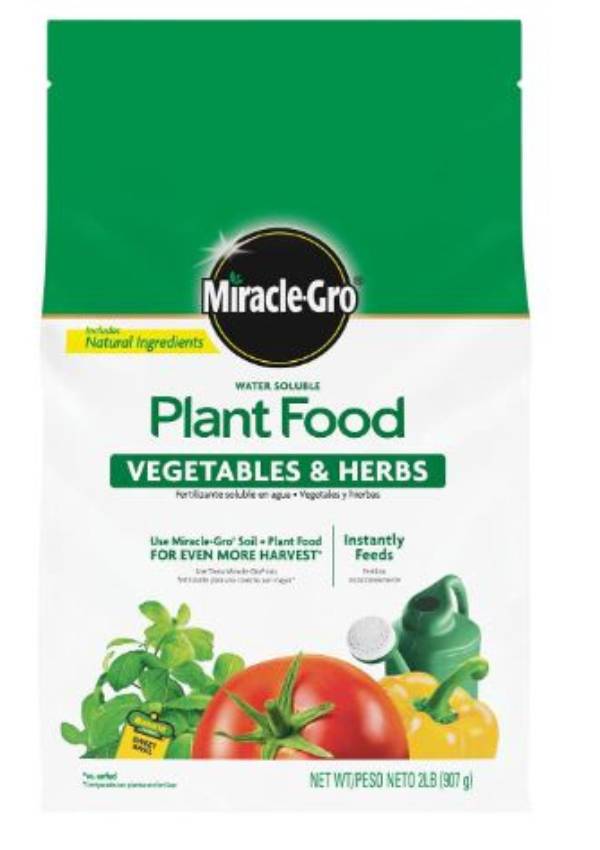
If you’re looking for a water-soluble plant food created from natural ingredients that rapidly promote big and gorgeous eggplants, look no further.
When you grow at home, you can get large. If you follow the instructions provided by Miracle-Gro, you won’t have to worry about this fertilizer scorching the stems. Tomatoes, squash, peppers, cucumber, carrots, basil, and other vegetables and herbs benefit greatly from Miracle-Gro® Water Soluble Plant Food Vegetables & Herbs, which are made with natural ingredients. Harvests will be higher when compared to unfed plants.
- NPK (18-18-21)
- Use all crops and herbs every 7-14 days during the growing season.
- When used as instructed, this product is safe for all plants.
4. Dr. Earth Organic Vegetable Fertilizer
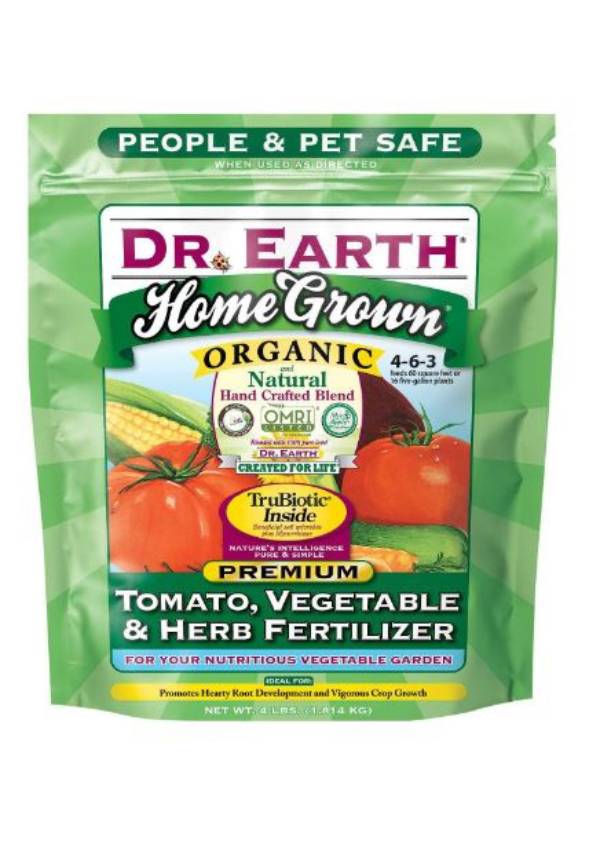
Dr. Earth is an obvious first choice for eggplant fertilizers since its organic elements stimulate larger and more nutritious eggplants. Furthermore, their TruBiotic mix incorporates plant-friendly microorganisms and mycorrhizae.
Gradually releasing nutrients enhances the soil’s quality and mimics nature. Dr. Earth’s ingredient list is also remarkable, containing substances such as fish bones and minerals gathered directly from the earth.
Before planting, combine one and a half cups of this organic fertilizer prepared in the United States into ten square feet of soil. You can apply one cup per 10 square feet every two months when you are ready to harvest.
- There are no GMOs, chicken manure, or sludge.
- It is formulated to be released gradually.
- There are seven microorganism strains.
- Ecto and endo mycorrhizae are present.
- Improves drought resistance.
- Promotes vitamin uptake naturally.
- Enhances the nutritional value of Eggplant.
5. Espoma Organic Garden Tone
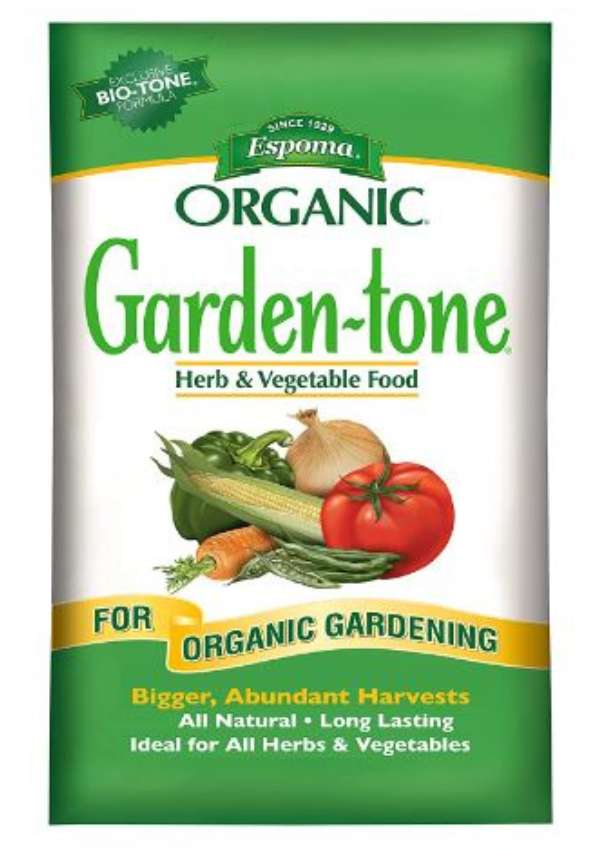
The Espoma Organic Plant Food is another natural-ingredient fertilizer with over 1000 microorganisms to help make your eggplants the best they’ve ever been.
This garden fertilizer is created in the United States and contains all 15 nutrients that your eggplants require. Not only that, but it is also safe for you, the environment, and your family. This is among the top fertilizers for growing Eggplant. This is a 3-4-4 fertilizer combination.
6. Osmocote Smart-Release Plant Food
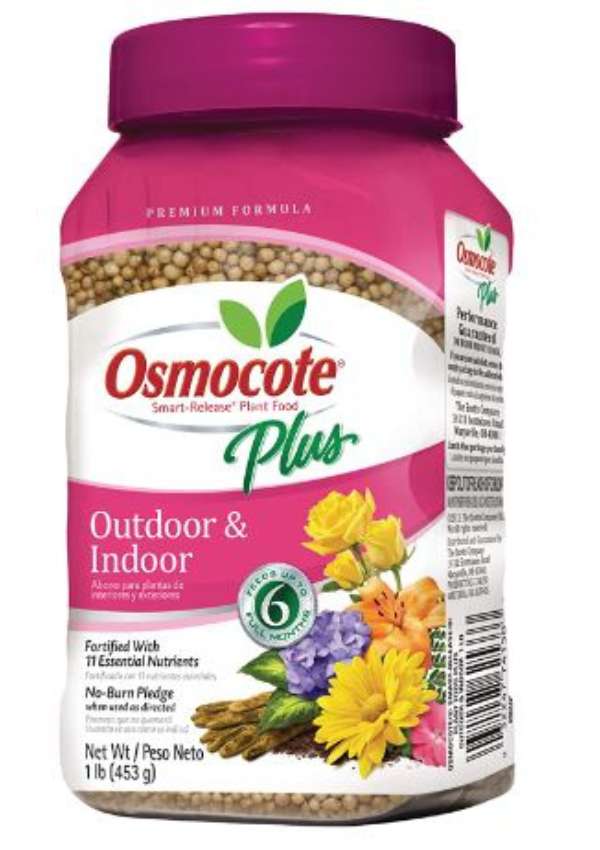
The Smart-Release compound in Osmocote lasts four months after application, which is ideal if you’re a hands-off gardener. The 14-14-14 solution supports the development of stronger root systems in eggplant plants.
Before you plant your Eggplant, it is advisable to incorporate the granules into the soil. The soil should next be thoroughly watered before allowing the resin-coated semi-permeable granules to do their job.
When combined with water and warmer temperatures, the granules become active. Your eggplants will consequently get more nutrients as the summer progresses, and they become necessary for increasing their fruit production. The early start to the growing season that Osmocote’s fertilizer provides for veggies makes them proud. Furthermore, expect more abundant, healthy growth.
- Granules that are semi-permeable.
- Releases more quickly as the temperature rises.
- An equal distribution of essential macronutrients.
- Excellent for early eggplant planting.
- Promotes strong roots.
- Can last for up to four months.
- Encourages quicker growth.
7. MasterBlend Vegetable Fertilizer
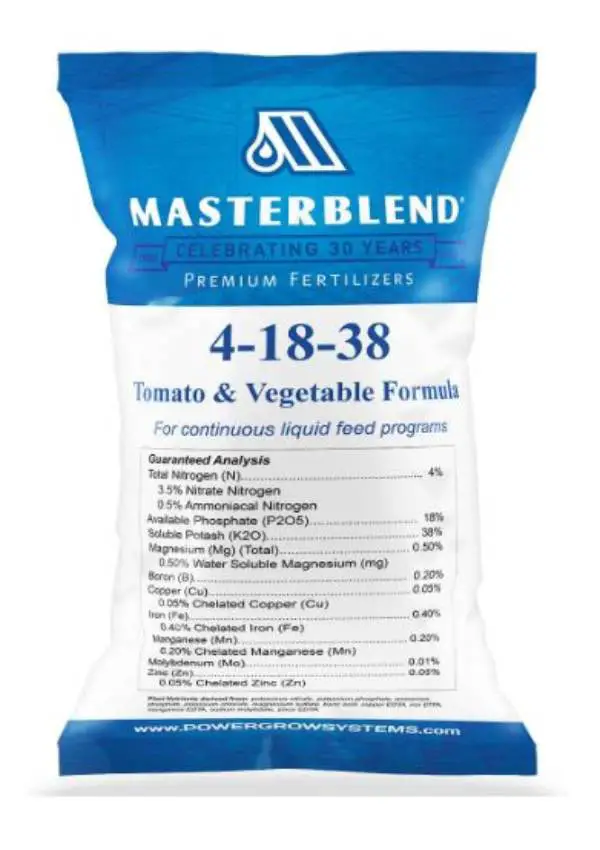
MasterBlend Vegetable Fertilizer is the only choice if you require a lot of fertilizer for your plants. For many years, MasterBlend fertilizers have been the preferred hydroponic and garden fertilizers for commercial gardeners. While this is an excellent fertilizer for eggplants grown in the ground or in pots, it is even better for hydroponic eggplant cultivation.
This fertilizer is water-soluble and contains all the trace minerals required to produce larger eggplants. They consistently deliver results with their 4-18-38 Tomato and Vegetable Fertilizer.
It is advised to combine 4-18-38 with magnesium sulfate (Epsom salt) and calcium nitrate for the best-balanced water-soluble solution because of its unique makeup. This will be one of the best eggplant fertilizers you’ve ever used.
- MasterBlend 4-18-38 dissolves in water.
- Fertilizer for tomatoes and vegetables, direct from MasterBlend
- Extremely concentrated
8. Jobe’s Fertilizer Spikes Fertilizer
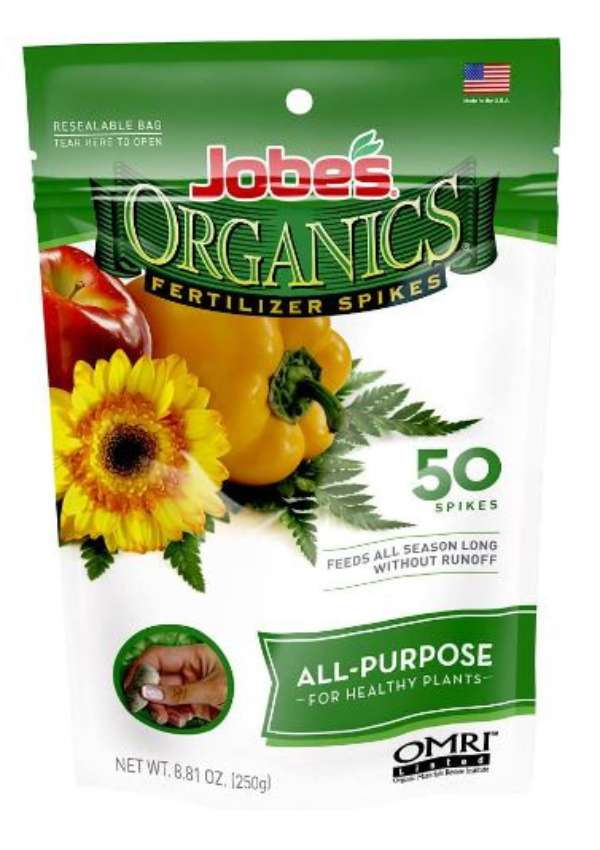
Jobe’s Organics Vegetable Fertilizer Spikes are one of the best eggplant fertilizers available and are ideal for eggplant producers. You’ll like this product’s spike fertilizer properties, which include a timed release and premeasured nutrients. In addition to helping your plants, this will restore your soil, boost your ability to fend off disease and insects, and even help you survive drought.
You can use Jobe’s fertilizer from the soil preparation stage all the way through seedling and fruit production. Its higher-than-average phosphorus concentration encourages the growth and reproduction of Eggplant. This organic product is both kid- and pet-friendly.
Furthermore, because this is an organic, non-toxic substance, your children can assist you in planting these fertilizer spikes. Your eggplants will be more resistant to disease and insects thanks to the abundant microorganism mix in Jobe’s Biozome solution. Additionally, this fertilizer will assist in keeping moisture in the soil around the roots of your eggplant plants.
- Properties with a time release.
- Organic certification.
- Microorganisms from Jobe’s Biozome.
- Disease prevention.
- Insect repellent.
- Helps in the retention of moisture in the soil.
- Phosphorus concentration is high.
9. Burpee Organic Bone Meal
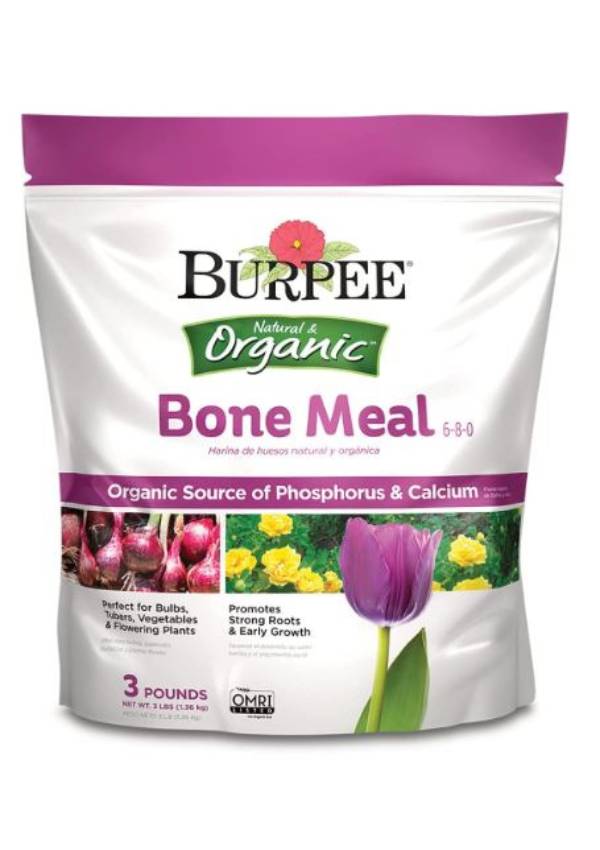
The majority of fertilizers for eggplants have significant amounts of nitrogen, phosphorous, and potassium, together with minor quantities of other crucial nutrients. However, sometimes you only need some of those components, depending on the condition of your soil.
Bone meal degrades slowly, providing nitrogen for healthy growth throughout the season; it will not burn plants. Burpee Organic Blood Meal provides your Eggplant with pure nitrogen. Nitrogen promotes leaf growth and color in your plants. Calcium and phosphorus are easy to access and can be found naturally in bone meals.
Your soil will build strong roots, experience improved early-season growth, and produce excellent blooms and fruit when harvest time comes around, thanks to the early-season addition of phosphorus.
Burpee’s primary component, blood meal, which is essentially dried animal blood, may offend vegetarians and vegans. To help your Eggplant grow, this organic and natural environmental aspect boosts beneficial soil bacteria. As a result, your eggplant fruit will have a better chance of maturing.
Burpee’s bone meal is excellent for beginning peppers and tomatoes and encouraging strong root and bulb crop growth.
- Formulated with pure nitrogen.
- Promotes healthy eggplant growth.
- Promotes root growth.
- Beneficial to soil microorganisms.
- It has a pleasant odor.
- Can be used with Burpee’s Bone Meal.
- OMRI organic certification.
10. Jack’s Classic All-Purpose Fertilizer
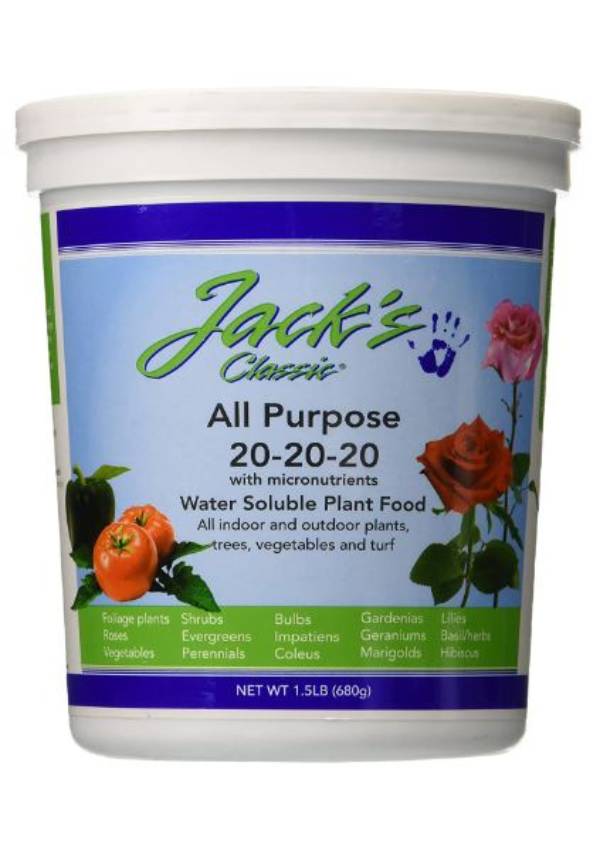
Jack’s Classic is another great alternative if you want to apply an even nitrogen, phosphorus, and potassium ratio. If you know your soil lacks good growing conditions, it’s a good option.
Jack’s Classic has been around for numerous generations, and they guarantee that their fertilizer is a tried-and-true performer. Jack’s Classic is quick-acting since it is made from high-quality ingredients. Because of this, you may anticipate your eggplants to produce roots and shoots more quickly than usual, which will cause your eggplants to become plumper. The other veggies, shrubs, and trees in your yard can also benefit from this fertilizer’s application.
Frequently Asked Questions
How do I Feed the Potted Eggplant?
You can grow eggplant cultivars like Burpee’s Millionaire Hybrid and Blue Marble Hybrid in pots if you live in a flat or an apartment. However, because the plants have less soil from which to draw nutrients and watering the plants flushes soil and nutrients out of the container, eggplants grown in containers need to be fertilized every one to two weeks with soluble fertilizers such as 15-30-15 or 20-20-20.
By giving your eggplants a balanced diet of nutrients, you can be sure that you’ll get plenty of tasty fruits and vegetables in return.
How can we boost the production of Eggplant?
Eggplant is a long-term crop; excellent output necessitates a large amount of manure and fertilizer.
Why isn’t my Eggplant producing fruit?
Insufficient water and temperatures above 32°C are the two leading causes of stressed eggplants, which stop producing fruit. In addition to dry conditions, flowers can also wilt because of cold temperatures, pollination issues, poor soil quality, or pest damage.
Is fish manure beneficial to Eggplant?
When they first set fruit and then every 4 to 6 weeks after that, summer crops like tomatoes, peppers, and Eggplant will benefit from the side dressing of organic fertilizer. Alternatively, you can water a diluted mix of fish, imitating liquid, seaweed extract, or kelp meal every ten days.
- 20+ Chic Boho Bedroom Ideas for a Cozy and Stylish Retreat - June 20, 2024
- 12+ Modern Boho Living Room Ideas to Create a Unique Oasis - June 10, 2024
- 10 Stunning Canopy Bed Ideas for a Dreamy Escape - May 16, 2024

